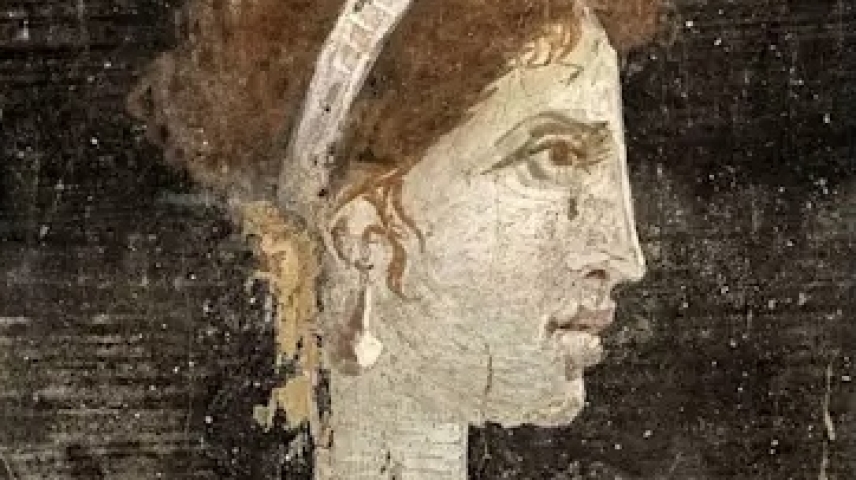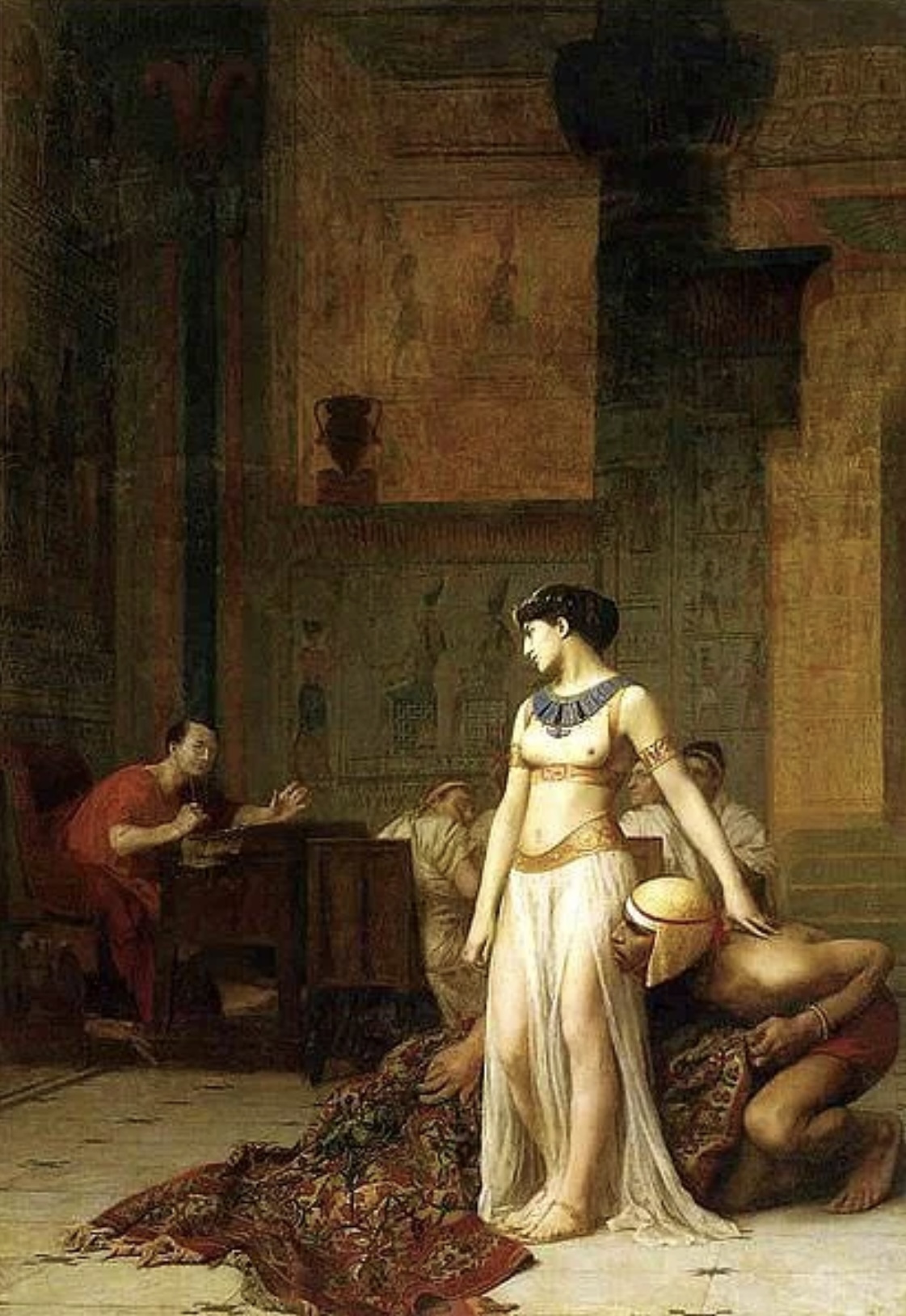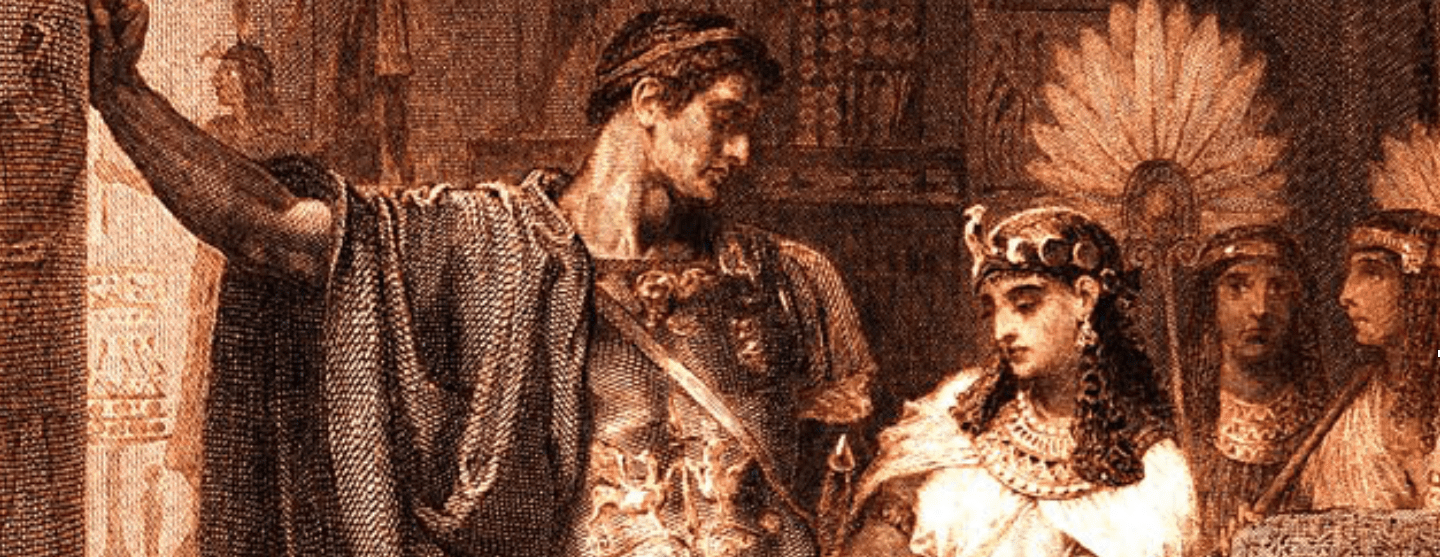
Photo credits: A portrait likely painted posthumously of Cleopatra, dating to the 1st century AD, from Roman Herculaneum, Italy. (Credit: Ángel M. Felicísimo / Public Domain / Wikimedia Commons)
Secrets of Success, Love, and Life: The Legacy of the World’s Visionaries. A recurring Monaco Voice column exploring the lives, achievements, and philosophies of the world’s most influential visionaries, uncovering the secrets behind their success and enduring legacies curated by actress Vladyslava Garkusha.
Cleopatra VII, the last queen of Egypt, remains one of history’s most enigmatic figures, a dazzling embodiment of power, beauty, and intellect. If you think that ruling one of the most influential and wealthiest empires of the ancient world is impressive, you’re right. But if you think Cleopatra’s legacy is built solely on her famous love affairs with Julius Caesar and Mark Antony, think again. The secrets of her success, love, and life lie deeper, and they’re not as obvious as the dramatic tales you’ve probably heard in countless movies, novels, and plays.
Born in 69 BCE into the Ptolemaic dynasty, which had ruled Egypt for nearly 300 years, Cleopatra ascended the throne at a mere 18 years old, following the death of her father, Ptolemy XII. She was first and foremost, a sharp political strategist and a brilliant ruler who understood the game of power. If you believe it’s tough to run a modern-day country, try inheriting a kingdom that’s on the brink of civil war, financial ruin, and facing the ever-looming threat of Roman expansion.
Cleopatra, unlike many of her royal predecessors, didn’t rely solely on her title. She was an intellectual force - fluent in several languages, including Greek and Egyptian, and the only member of her dynasty known to speak the native tongue of the people she ruled. This cultural intelligence wasn't symbolic; it was strategic. It helped her position herself not only as a Greek monarch but as an Egyptian pharaoh, a dual identity that gave her legitimacy in the eyes of both her subjects and foreign powers.
Cleopatra and Caesar
Cleopatra met Julius Caesar in 48 BCE during Egypt’s civil war, as she struggled against her brother Ptolemy XIII for sole control of the throne. With Caesar newly arrived in Alexandria, Cleopatra arranged a discreet meeting - reportedly by having herself smuggled into his quarters, likely in a bed sack. The moment was theatrical, but the purpose was political: she needed an ally, and Caesar, in turn, saw in her a strategic partner.
Caesar supported Cleopatra’s claim, and with Roman military backing, she regained power. Their relationship, though politically grounded, grew personal. The two spent several months together in Alexandria, and Cleopatra later gave birth to a son, Ptolemy XV - known as Caesarion - whom she claimed was Caesar’s child. While Caesar never publicly recognized the boy as his heir, he did allow Cleopatra and Caesarion to reside at his estate in Rome during her visit in 46 BCE.
Her presence in the capital caused unease among the Roman elite, especially when Caesar had a statue of her erected in the temple of Venus Genetrix. Yet Cleopatra remained a guest of honor until Caesar’s assassination in 44 BCE. She returned to Egypt soon after, politically intact and with her son, a living symbol of her connection to Rome’s most powerful man.

Photo credits: World History Encyclopedia. Cleopatra and Caesar
Cleopatra and Antony
Their alliance began in 41 BCE, when Mark Antony summoned Cleopatra to Tarsus, in present-day Turkey, to answer accusations that she had aided his enemies during recent Roman conflicts. Cleopatra did not come quietly or defensively. She arrived in a splendid barge on the Cydnus River, dressed as the goddess Isis, projecting divine authority and unmatched command of symbolism.
The political context was urgent: after Caesar’s assassination, Rome was again in turmoil. Antony, as a member of the Second Triumvirate alongside Octavian and Lepidus, sought resources for his military campaigns in the East. Cleopatra, meanwhile, needed Rome’s protection to preserve Egypt’s autonomy. Their meeting was the beginning of a deep personal and political relationship.
In the following years, their partnership solidified. Cleopatra provided Antony with military and financial support; Antony granted her territory and recognition. Together, they had three children: twins Alexander Helios and Cleopatra Selene, and a younger son, Ptolemy Philadelphus. Their alliance culminated in the “Donations of Alexandria” in 34 BCE, where Antony publicly distributed eastern lands to Cleopatra and their children - a move that alarmed Rome and gave Octavian a powerful propaganda tool.
Antony’s continued association with Cleopatra, and the perception that he had subordinated Roman interests to a foreign queen, eroded his standing in Rome. Octavian seized on this image, portraying Cleopatra as a dangerous influence who sought to dominate Rome through seduction and wealth. The conflict between Octavian and Antony escalated into open war.

Photo credits: Khambay’s Words, Words, Words. Antony and Cleopatra
The End of a Dynasty
The decisive moment came at the naval Battle of Actium in 31 BCE. Antony and Cleopatra’s forces were defeated by Octavian’s fleet. Both retreated to Egypt, where they made preparations for a last defense. The following year, as Octavian advanced on Alexandria, Antony took his own life after receiving false news of Cleopatra’s death. Shortly afterward, Cleopatra also died - most likely by self-administered poison. She was 39 years old.
With her death, the Ptolemaic dynasty came to an end. Octavian annexed Egypt as a Roman province. Caesarion was captured and executed - on Octavian’s orders - while Cleopatra’s surviving children with Antony were taken to Rome and raised by Antony’s widow, Octavia.
A Legacy Written - and Rewritten
Cleopatra was not merely the lover of powerful men, but a capable, multilingual ruler who maintained Egypt’s independence for over two decades during one of the most volatile periods in Mediterranean history.
She ruled at a time when women rarely held power alone, and she did so through diplomacy, cultural fluency, and strategic alliances.
What Endures
As the last monarch of ancient Egypt, Cleopatra marked the final chapter of a 3,000-year-old dynasty of pharaohs. Her reign signified the end of an era, yet her legacy has endured for over two millennia. Cleopatra's ability to navigate the intricate world of politics, love, and power, even in the face of overwhelming Roman influence, remains a testament to her remarkable intellect and resilience. Though Egypt ultimately fell under Roman rule, her life continues to captivate, reminding us of the complexity and enduring impact of one of history’s most feminine and dedicated rulers.

